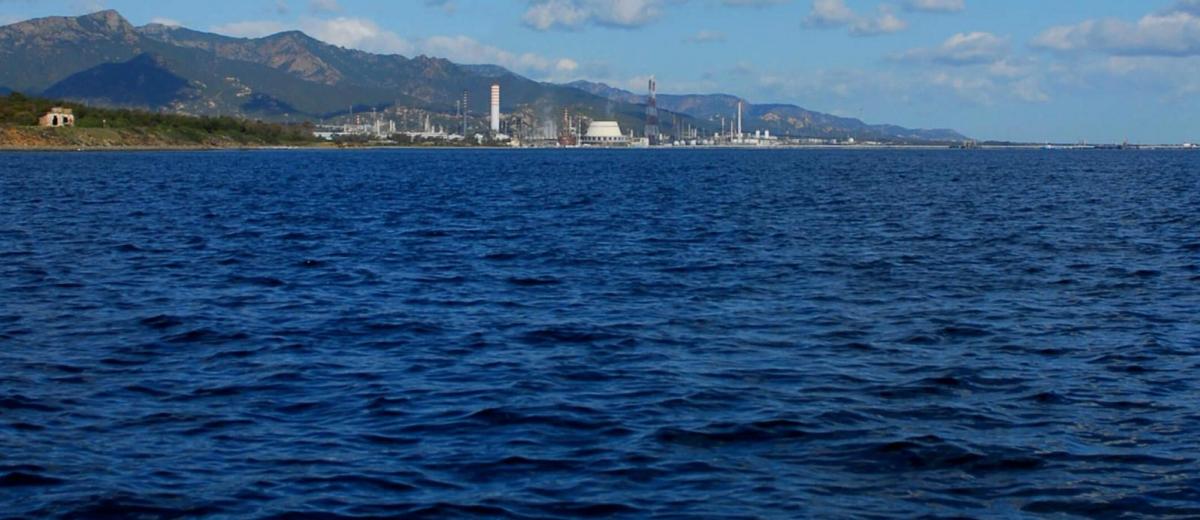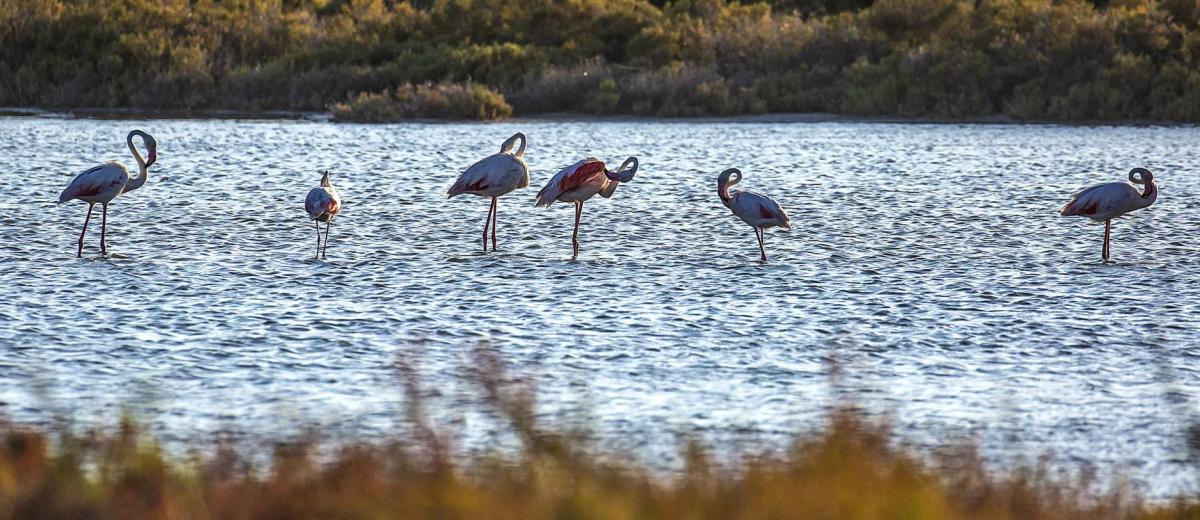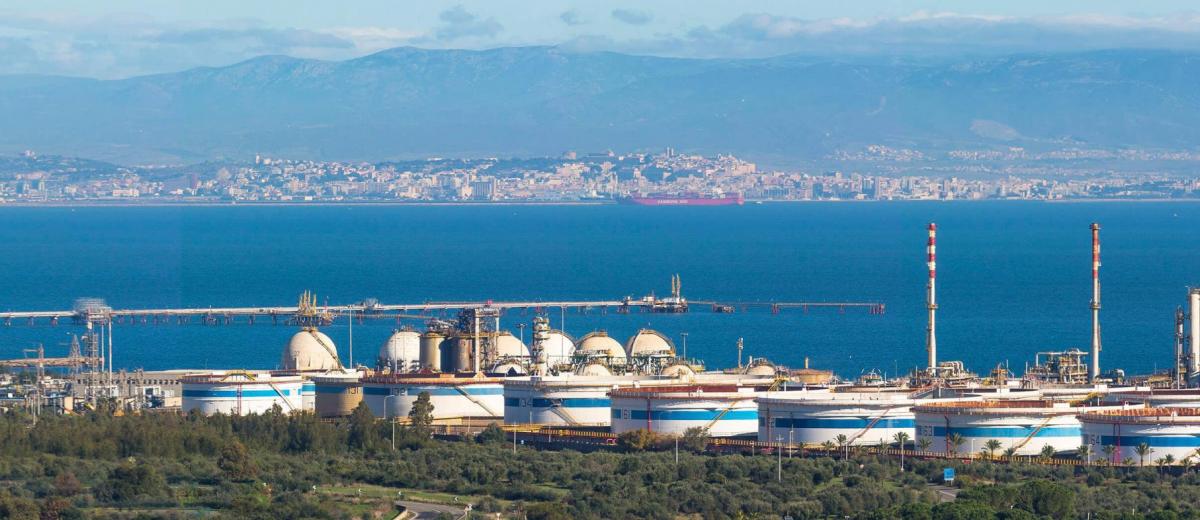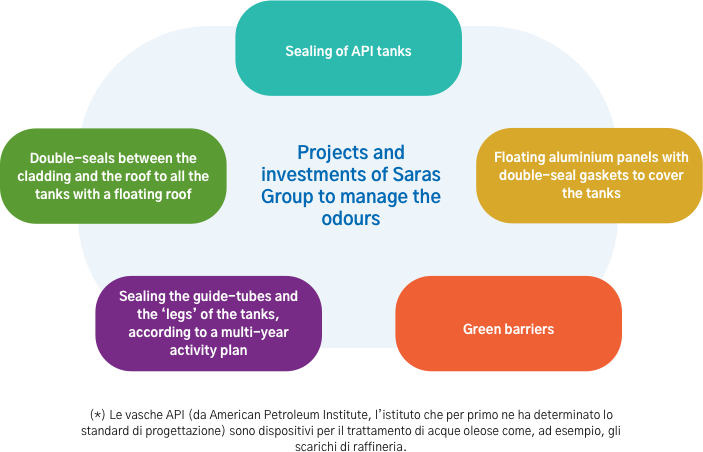Being a responsible company means combining business development with preservation of the natural environment where the company is located and operates. Since our foundation we pursued this objective on a daily basis, in all our operating areas.
In particular, Sarlux is the subsidiary that makes the greatest efforts in order to mimize its environmental footprint, because its peculiar business consists of managing one of the biggest integrated industrial sites in the Mediterranean basin.
It is therefore crucial for Sarlux to operate its numerous units efficiently, minimising energy use, reducing internal consumption, emissions and the production of waste, as well as optimising the use of all natural resources, and in particular water, which is an even more precious resource, within a region with as little rain as Sardinia.
Operating in respect of the environment is essential for our productivity, competitiveness on the markets and long term sustainability.
Indeed, the Group’s financial results can never be considered separately from the preservation of the natural environment in which the company operates. Therefore, Saras considers it essential to pursue industrial development in harmony with the environment and the region.
Emissions into the atmosphere and Greenhouse gases
The Group's emission indices, which refer to the activities of the Sarlux site, are largely below the legal limits.
The rational use of energy, the adoption of efficient production systems and specific treatments aimed at improving combustion and reducing particulate matter, represent the path taken by the Group for the control and reduction of pollutant emissions. The numerous investments in energy efficiency led to significant reductions in greenhouse gas emissions (CO2).
Management of water
Managing water resources has always been a topic of great attention and commitment for the Saras Group, also thanks to the Environmental Management Systema ISO 14001 and EMAS Regulation protocol.
Given that main business activities are carried out in Sardinia, a region characterised by little rainfall and frequent droughts, Saras constantly monitor and optimise the water footprint at Sarroch site:
- water withdrawn by the site (~74M m3/year) only 8% came from the industrial consortium in 2023; the remaining is seawater, that is taken and returned to the sea with practically the same qualitative characteristics of the water withdrawn;
- water use (~21M m3/year) is made by internal recover water (water reuse) for about 30% of the total in 2023, thanks to several investments in treatment and purification plants carried out.
Waste and discharges management
The Saras Group is committed to effectively managing waste and discharges, also through constant monitoring and control of activities.
Analysing the waste by destination, in 2023 more than 99% was sent to appropriate forms of treatment and recovery, while only a minimum portion was sent for disposal in landfills.
During 2023, there were no spills into the sea and no significant spills on land.
This is the result of the constant effort to ensure the integrity of the assets, the reliability of the production processes and the use of modern, efficient and safe ships for the transport of oil.
Energy efficiency
The high cost of energy and the growing sensitivity about environmental topics have made energy efficiency increasingly central for Saras.
Therefore it was created the Energy Management Dashboard, a system for monitoring energy consumption which, using data directly from the field and processed according to logics related to the type of unit or to the type of energy carrier, allows to perform an overall or a detailed energy analysis. Moreover the subsidiary Sarlux in 2018 obtained the Energy Management System crtification according to ISO 50001 standards.
Energy consumption derives almost fully from self-generated fuels, (94%) and only a small portion is purchased from the grid (6%).
Biodiversity
The major impacts from the Group’s activities, products and services on the biodiversity of the protected areas, or even on the biodiversity of other areas outside of the protected areas, relate to Sarlux, whose Sarroch industrial site is located on the coast, in proximity of protected terrestrial areas and it is therefore responsible for preserving marine flora and fauna.
Good quality status of the air is the main land biodiversity preservation activity, and it can be monitored, besides using chemical indicators, also with the observation of specific biomarkers (biomonitoring) as, for instance, the abundance or shortage of different species of moss.
Since several years, the Botanical Science Department of the Mathematical, Physical and Natural Sciences Faculty of the University of Cagliari performs, on behalf of Sarlux, in a wide area of the Sarroch hinterland, a vegetation state of health inspection campaign. The picture that emerges from the analysis with the bioindicators, shows a quality status that fits in an intermediate position within the range of the assessment IAP (Index of Atmospheric Purity) index. Indeed, the results of the monitoring carried out at 11 control stations fall primarily into “class 3” and, only in few cases, into “class 4”.



In the same area, another monitoring campaign is also carried out periodically on the state of health of the vegetation (visual inspection and check of bioaccumulation of pollutants). From this monitoring it can be observed that the bioaccumulation of these substances is lower than the annual averages across Italy and Europe.
A regular seawater quality status monitoring survey is carried out now since many years, by marine biologists, in the sea in front of the Sarlux site area.
Monitoring of the Trophic Index (TRIX), an indicator that allows the quality status of seawater to be expressed in summary form, is used for the description of the seawater quality status. In the entire period 2017-2023, the seawater quality status has been on the high end of the classification range (high-good), as a witnessing proof of the excellent results achieved by the Group’s with its commitment to protect the sea.
Odours
The refinery’s activities can in fact involve the presence of unpleasant odours that, although they do not have adverse health implications for people, do however have a negative impact on the perception of the plant by the community.
Saras considers the theme of odours as one of the Group's constant and fundamental commitments. Starting from the results of the monitoring plan and the control campaigns carried out, Saras has launched detailed studies and has subsequently
planned and implemented investments to minimize the impacts of odours on the territory.

The attention dedicated to social and environmental responsibility is a constant in our history and it finds immediate confirmation in the publication on Tuesday April 6th 2021 of the first Report on the compliance with the ESG standard according to the SASB (Sustainability Accounting Standards Board) standards for the company listed on the Italian stock market. The Report was created by V-Finance, a company specializing in innovative and sustainable finance, partner of the Italian Stock Exchange for the "Sustainable Finance" program.
The SASB approach identifies five "material" dimensions (environment, social capital, human capital, business model and innovation, leadership & governance) and analyzes them on the basis of the probability of impact on the operational and financial performance of a company, and its relative risk profile. It is a performance standard that comes mainly from the USA, while in Europe the most used standard is the GRI (Global Reporting Initiative - Sustainability Standards).
In this Report, Saras ranked first in the MTA market in terms of environmental aspects.

